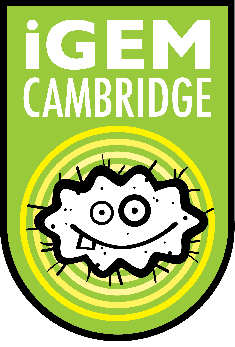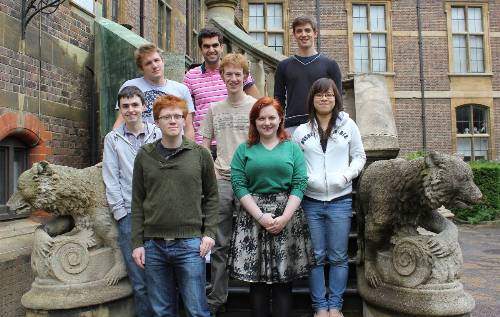Team:Cambridge
From 2012.igem.org
| Line 4: | Line 4: | ||
|- | |- | ||
| | | | ||
| - | ''Previous iGEM teams have charaterised an impressive array of inducible promoters, along with other elements of biosensing circuitry. But, to date, the output from each is not consistent | + | ''Previous iGEM teams have charaterised an impressive array of inducible promoters, along with other elements of biosensing circuitry. But, to date, the output from each is not consistent and, in spite of the unifying biobrick standards used, do not necessarily couple together to make integrated test kits. The Cambridge iGEM 2012 team aim to take the true meaning of biobricks to heart, by creating an open and applied biosensor standard available for use by all subsequent teams, as well as, potentially, by industry and researchers in the field. |
| - | The biosensor aims to be modular in design, allowing the kits to be tailored to an individual's requirements, and to use light as an output to allow computer interfacing. We aim to use two luciferases, one to give a read-out of the input, and the other to | + | The biosensor aims to be modular in design, allowing the kits to be tailored to an individual's requirements, and to use light as an output to allow computer interfacing. We aim to use two luciferases, one to give a read-out of the input, and the other to act as a standard to allow fluctuations in colony size to be taken into account. Furthermore, we shall be using ''B. subtilis'' as our chassis, with the view to making the most of the spore forming capacity of bacteria to send out desiccated kits with long shelf lives.'' |
| - | + | ||
| - | + | ||
| - | + | ||
| - | + | ||
|[[Image:Cambridge_team.png|right|frame|Your team picture]] | |[[Image:Cambridge_team.png|right|frame|Your team picture]] | ||
|- | |- | ||
Revision as of 15:04, 2 July 2012
| Abstract: | |
|
Previous iGEM teams have charaterised an impressive array of inducible promoters, along with other elements of biosensing circuitry. But, to date, the output from each is not consistent and, in spite of the unifying biobrick standards used, do not necessarily couple together to make integrated test kits. The Cambridge iGEM 2012 team aim to take the true meaning of biobricks to heart, by creating an open and applied biosensor standard available for use by all subsequent teams, as well as, potentially, by industry and researchers in the field. The biosensor aims to be modular in design, allowing the kits to be tailored to an individual's requirements, and to use light as an output to allow computer interfacing. We aim to use two luciferases, one to give a read-out of the input, and the other to act as a standard to allow fluctuations in colony size to be taken into account. Furthermore, we shall be using B. subtilis as our chassis, with the view to making the most of the spore forming capacity of bacteria to send out desiccated kits with long shelf lives. | |
| Team Cambridge |
| Home | Team | Official Team Profile | Project | Parts Submitted to the Registry | Modeling | Notebook | Safety | Attributions |
|---|
 "
"

